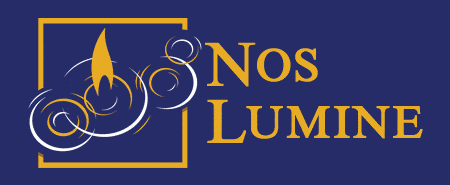TRUST, KNOW, LIKE, and TRUST
I have been married for 36 years. I understand the wisdom of the adage “Know, Like, and Trust”.
I was in Executive Search for 30 years and was self-employed for 20 of those. I appreciated the value of “Know, Like, and Trust”.
And since becoming a Leadership Coach, I live the absolute necessity of “Know, Like, Trust”.
It’s all about building strong and deep relationships, because people choose to do business with those they “Know, Like, and Trust”. Fair enough.
Or is it? Lately, I have been wondering about the unquestioned merits of this long-standing axiom.
Bill Carmody, Founder and CEO of Trepoint wrote this in 3 Little Known Sales Secrets:
“When it comes to driving sales, it’s important to remember a couple of things:
- People buy on emotion and back-fill with logic.
- People like to buy, but no one likes to be sold.
- People do business with the people they know, like and trust.
“This is why the best salespeople go through a simple, but powerful, process of getting to know their prospects, increasing their “likability” factor and building trust. Getting to know potential buyers may feel a bit daunting at first as it requires putting yourself out there. The simplest way to get to know people is to find ways to add value first before you ever try to sell them something. Using this model, you immediately remove the “sales” barrier and instead focus on where you can add value while getting to know the person you’d like to do business with.
“As you’re getting to know your prospective buyer and finding ways to add value, you’re increasing your likability factor. The more someone likes you, the more they begin to trust you.”
That’s my basic understanding of the principle, and I have no disagreement with it. How about You?
Jamie Lee Wallace asks in, The Truth about Know – Like – Trust, “How do you get known? How do you get people to like you? How do you earn their trust?” and provides short lists of answers, including:
“I get to know people by . . . Looking at their associations with other people I know”
“I decide if I like them by asking myself . . . Do their values align with mine?”
“I decide if I can trust them based on . . . Whether their actions are consistent with their words”
Excellent! But, my question is:
Can you start with “Trust” and quicken establishing mutually beneficial relationships? I posed the question in my Mastermind Group recently and was met with a lot of push-back in favor of the traditional understanding of the concept.
My theory, suggesting that you can, start with “Trust” and quicken establishing mutually beneficial relationships was based on a recent experience I had at the grocery store.
I’m a die-hard Green Bay Packers fan. I was born and raised in Wisconsin and actually own a share of stock in the team. Yes, in addition to everything else, I’m an owner of an NFL franchise. Anyway, I was walking down the aisle and spotted a guy wearing a Packers jacket. Not a unique thing in Wisconsin, but I’m in Ohio. It’s The Ohio State Buckeye territory. So, I asked the guy, “are you a fan or do you just like the color palette?” He laughed and we talked for 20 minutes about how he, an Ohio native, has been a Packer fan since 1963, about how they blew that championship game against Seattle, and how I almost burned my stock certificate in disgust afterward.
I contend that I started with trust – based on obvious common ground – and then moved to know and like. Was it the level of trust that would warrant me leaving my kids with him for the week? No, but was it a basis for trust that would allow me to move to know, like, and an actionable level of trust faster? I believe so.
My question is this:
Which is a better use of our time in expanding our shared networks and growing our businesses?
(A) Attending open business networking events, starting with, “Hi my name is Jim, what’s yours?” and progressing through the typical steps to “Know, Like, and Trust”?
Or
(B) Engaging in a “community” of Catholic Business People where there is obvious common ground – as with the Green Bay Packers fan in the grocery store – that creates a shorter and quicker path to real “Know, Like, and Trust”?
Perhaps it’s not as controversial as replacing the traditional “Know, Like, and Trust” with “Trust, Know, and Like”, rather a simple expansion of the adage to “Trust, Know, Like, and Greater Trust”.
About the Author
Jim Gernetzke
Jim Gernetzke is a John Maxwell-trained and certified business coach and teacher leveraging his 35-plus years' experience in recruiting, personal development and coaching to help individuals become the BEST version of themselves. As a lifelong and devout Catholic, he recognized that too many Catholic business professionals are leading divided lives. Nos Lumine is an answer to that dilemma, helping Catholics transform themselves, and the culture, one person at a time.
